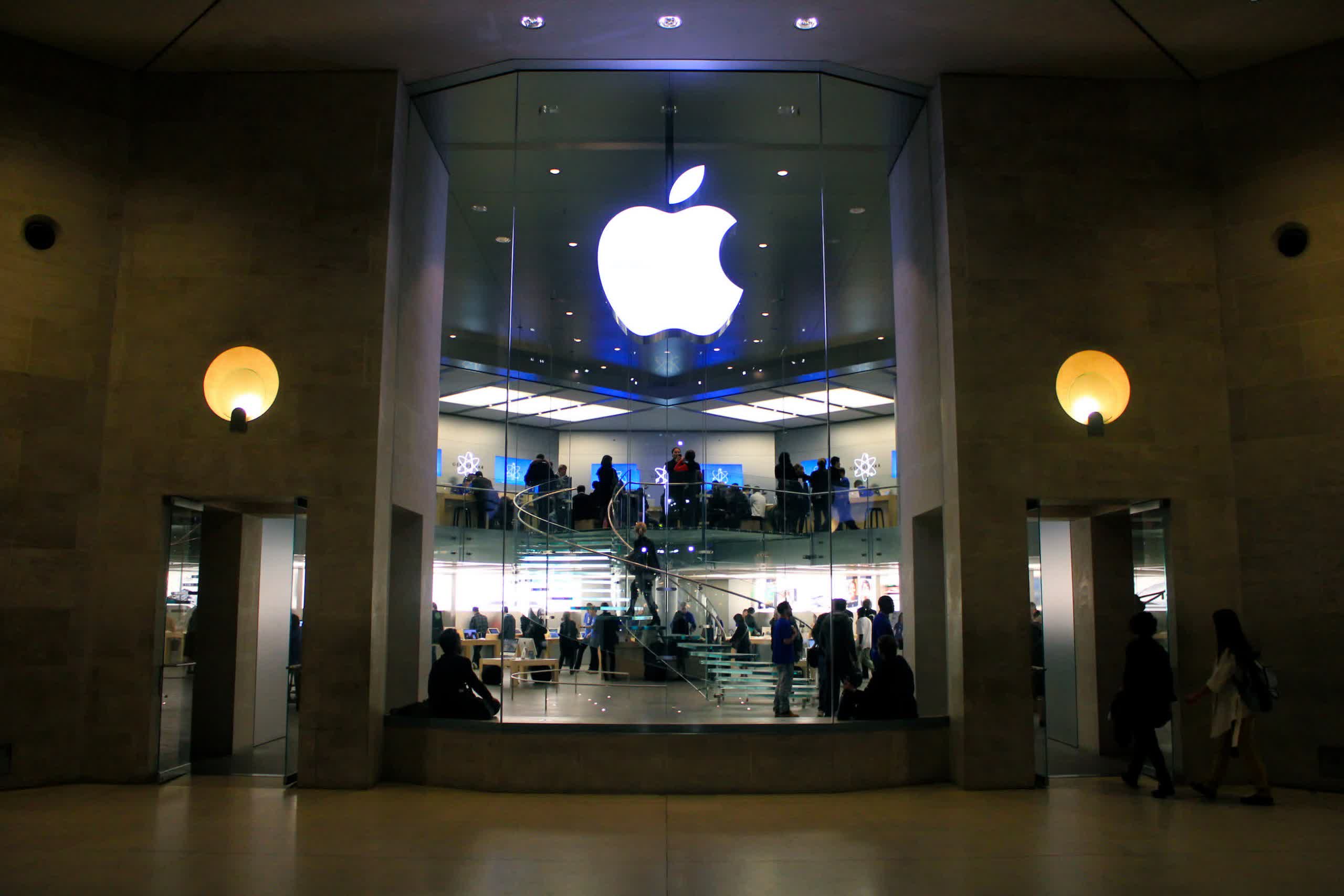Facepalm: A 2017 statement made by Apple CEO Tim Cook has come back to haunt him to the tune of $30 million. At the time, the chief said that the iPhone had become so "integrated and integral" in people's lives that they could not leave home without them. The comment came right in the middle of a plaintiff-appealed lawsuit where Apple's legal team argued that the company should not be required to pay off-the-clock employees during routine searches because they could have left their iPhones at home.
Last Friday, Apple offered plaintiffs $29.9 million to settle a class-action lawsuit originally filed in 2013. The suit was over Apple forcing employees to submit to searches of their bags and iPhones while off the clock. According to the California Supreme Court, this practice goes against the state's labor laws.
In 2015, the Ninth Circuit dismissed the case noting that the US Supreme Court had struck down a similar suit against Amazon by warehouse workers. Had the decision gone the other way, it was estimated that Apple would have been on the hook for around $60 million. This figure covered more than 12,000 past and present employees for lost time between 2009 and 2013.
Plaintiffs appealed the lower court's decision to the California Supreme Court. In February 2020, the high court found that since employees were still under their employer's control while being searched, California labor laws required Apple to pay them.
"[Apple workers] are clearly under Apple's control while awaiting, and during, the exit searches," wrote Chief Justice Tani Cantil-Sakauye. "The exit searches burden Apple's employees by preventing them from leaving the premises with their personal belongings until they undergo an exit search---a process that can take five to 20 minutes to complete---and by compelling them to take specific movements and actions during the search."
Apple's primary defense was that the security policies were in place to prevent the theft of company property and trade secrets. It further argued that the workers could have left their belongings at home. The plaintiffs were aware of Apple's security policies and made a conscious choice to bring their bags and iPhones to work with them, knowing they would be searched whenever they left the premises.
The unanimous court decision stated that Apple's stance on bringing belongings to work, particularly iPhones, was not consistent with its publically stated view of the iPhone.
"The irony and inconsistency of Apple's argument must be noted," the ruling reads. "Its characterization of the iPhone as unnecessary for its own employees is directly at odds with its description of the iPhone as an 'integrated and integral' part of the lives of everyone else."
This last part is a jab at something Tim Cook said in a 2017 interview with CNBC.
"I think the iPhone is the best consumer product ever. That's what I feel about it. And it's become so integrated and integral to our lives, you wouldn't think about leaving home without it," Apple's CEO said, apparently oblivious to his legal team's primary argument in ongoing litigation.
The $30 million settlement still has to be approved by the plaintiffs. If they agree, it works out to a maximum payment of about $1,300 for some claimants. Payouts are based on time worked between 2009 and 2013, and the average allotment is expected to be around $800.
"This is a significant, non-reversionary settlement reached after nearly eight years of hard-fought litigation," stated plaintiff attorney Lee Shalov in the proposed settlement.
Lawyers for the plaintiffs strongly recommend agreeing to the settlement.
Image credit: Mikhail (Vokabre) Shcherbakov (CC BY-SA 2.0)
